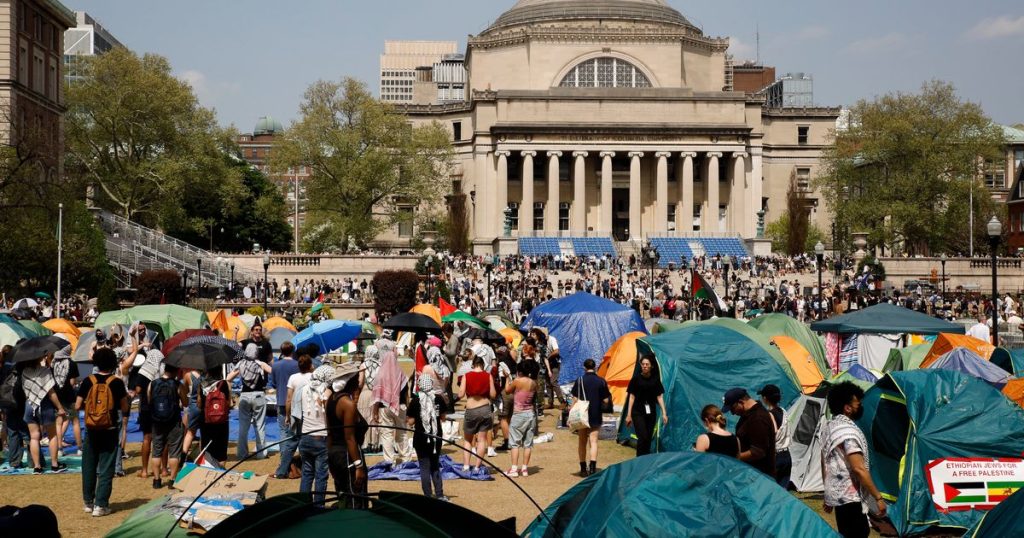Colleges across the United States are grappling with protests led by pro-Palestinian student activists. At the University of Texas at Austin, police arrested six demonstrators, using pepper spray and flash bang explosives to disperse the crowd. Governor Greg Abbott reiterated that no encampments would be allowed on campus. At Columbia University, where students have set up an encampment of around 120 tents, the school issued an ultimatum to disband or face suspension. Demonstrators at Columbia did not comply with the deadline, resulting in the suspension of several students who refused to leave.
The protests at Columbia have sparked similar demonstrations at universities nationwide, with many students expressing their support for Palestinians and calling for divestment from Israel. Tensions have escalated at schools such as Harvard, University of Pennsylvania, and Yale, where standoffs between protesters and authorities continue. Yale warned protesters that they could face discipline, including suspension and possible arrest if they continued to occupy the campus. Conversely, Northwestern University reached an agreement with protesters to allow peaceful demonstrations through the end of the semester.
By contrast, Brown University offered protest leaders the opportunity to discuss their arguments for divestment from Israel-linked companies in exchange for ending the encampment. Similarly, Columbia urged protesters to dismantle the encampment as exams and graduation ceremonies were approaching, hoping to avoid disrupting these events. The handling of protests at Columbia has led to federal complaints from both Jewish students and pro-Palestinian groups, with allegations of breach of contract and concerns about the safety of the learning environment.
The protests have also led to remote classes at Columbia, as bringing back police at this time is seen as counterproductive. Students arrested during the protests are calling for amnesty, concerned about the impact of suspensions and legal records on their future prospects. Some universities, such as Yale, have restrictions on holding events and erecting structures on campus without permission. The demonstrations have resulted in a clash between students advocating for their right to free speech and universities seeking to maintain order on campus.
Overall, tensions are escalating on college campuses as students and activists clash with authorities over pro-Palestinian protests. The protests, sparked by the Israel-Hamas conflict, have led to widespread arrests and suspensions at universities across the country. Colleges are struggling to balance the rights of students to protest with the need to maintain order on campus as the academic year comes to a close. The situation remains volatile, with demonstrators standing firm in their demands for divestment and calling for amnesty for those arrested during the protests.


